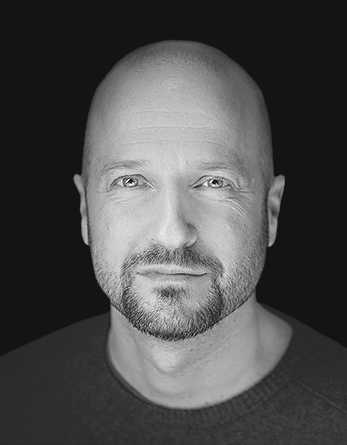
We interviewed Pastor Ken Wytsma, author of The Myth of Equality about why pastors should view seeking justice for the oppressed as a form of care ministry. In light of recent events in our nation, his insights are particularly timely and beneficial for church leaders to hear.
Why are you passionate about helping the underserved?
When I was eight years old, a refugee family came to live with us. This was a formative experience for me and set the trajectory of my ministry toward those who are vulnerable and oppressed: the poor, the orphan, the widow, the immigrant. As I’ve been in ministry, I’ve come to realize that there’s a lot that needs to happen in the evangelical world as it relates to race and privilege.
Why do you think people will listen to what you have to say about this issue?
We tend to hear things best from within our own tribe, so to say, so some of these conversations can be best started from someone like me: a white evangelical.
You say that seeking justice is a form of care ministry. Why?
Let me give you a common example to help make that connection. In our criminal justice system, if you can’t afford a good lawyer, you’re already starting out from a disadvantaged position; if you can’t get good representation, it’s hard to get the system to work fairly for you. Caring for this person, then, seeking justice for him or her, means ensuring that all people, especially the poor and disadvantaged, gain a fair footing in an area that really matters, like the justice system.
Notice that I am not speaking about justice from simply a negative or punitive stance. Rather, justice must be restorative. It is a shame that while we in the United States have only 5 percent of the world’s population, we have 25 percent of its prisoners. We love to punish people. But the idea of punitive justice, punishing people, borrows from a bigger concept of justice, the sense that things are as they ought to be. And so, if we just take the negative sense of justice, we leave off the implied part that justice is equality, fairness, goodness, and shalom. It is each person functioning properly within their God-ordained role, and living that out fully. Seeking or pursuing justice is seeking or pursuing the whole of it—the goodness, the flourishing, the shalom—when things are as they ought to be, when we are living in relationship with one another properly as God intended.
Are there biblical examples of people being encouraged to renounce their sense of privilege?
Most of us are familiar with the accounts in Scripture where Jesus interacts with the Samaritans. If you’ll remember, the Samaritans were considered “unclean” people; Jews wouldn’t go through Samaria or even look at a Samaritan. And yet, several times Jesus includes the Samaritans in His parables. In doing so, He wanted to hammer away at their sense of privilege, isolation, and lack of care for their neighbor. Likewise, as pastors, we must have similar conversations, or perhaps more appropriately, confrontations. Just as Jesus challenged the sense of privilege with the religious figures of his day, so we must challenge when privilege leads to distance and lack of concern for others within our churches.
But does the gospel really address social issues like racism and privilege?
Many people see race and privilege as a valid conversation in the public arena, but unfortunately they also see it as irrelevant to our gospel conversation. And that’s a problem. The gospel, the good news, is about the light of Jesus, and light touches everything in the room. That means there isn’t a part of that room, a part of society, that we can cut off and say it isn’t relevant to the gospel conversation. How could we possibly think that the good news wouldn’t have something to say to one of the most profound injustices in the world for the past five hundred years? So the gospel speaks to everything, including the harmful categories that separate us from each other.
What are examples of these harmful categories that separate people?
We all carry with us harmful categories that need to be weeded out. I’ve heard phrases like “they have more kids to get more welfare.” Or that refugees are going to bring other religions here and change our culture. It is a very destructive thing to put all of a racial demographic in some sense into a box like that. Often when we hear “they,” it should come across as problematic to us. But weeding out the “they” comments, the fear-based comments, is difficult. Some of these are so ingrained in us that we don’t even notice them.
Take, for instance, the case of George Zimmerman several years ago. That case and those like it ultimately point to a fear of those who are not like us; in this case, it was a fear of black men both in Zimmerman and in members of the jury. There’s an implicit racial bias in our society against particular groups, namely those who are different from us, and it shows up in situations like this. But we start from a position of fear, and that leads us to some startling behavior. We also see this with racial profiling, which has often led to over-policing in certain districts of people who might be poor or don’t have as much representation in certain governing bodies.
Are we just supposed to feel bad or guilty about social injustice?
In writing Myth of Equality to challenge some of these notions, it wasn’t with the purpose of wanting everyone to make apology or find a minority to hug. Instead, it’s so that the next time you sit down and you’re watching the news and a thought jumps into your mind about “those people” that you catch yourself with that thought; that you catch yourself with that kind of prejudiced response, and you question it; that you would become conscious or aware of these things, because they can change.
So what should we do about it?
Pastors, as the teachers of churches, the leaders, the examples, the influencers, must understand the issues of justice and be at the forefront of those conversations so that people are being challenged and they’re growing.
But I want to challenge us to think beyond “doing.” It’s more of a being question: are we willing to engage this conversation, are we willing to sit and learn, are we willing to lament the fact that perhaps we’ve gotten it wrong historically, and then are we willing to let the Holy Spirit speak to us about how we might need to change some things about the formation of our church so that we’re a better expression of the body of Christ in that community?
What if people are uncomfortable being challenged on these issues?
The role of a pastor is not always to comfort the afflicted, but to sometimes afflict the comfortable. Our job isn’t just to meet people’s felt needs, but it’s to surface and address deeper spiritual need as well. So when we speak to churches in a way that reinforces people’s desire for comfort and security, it might grow a large church. But our role as pastors, as shepherds, is to speak truth, and sometimes that will mess with people’s sense of comfort or security.
The role of a pastor is not to comfort the afflicted, but to afflict the comfortable.
We need to grow in our ability to be challenged. Oftentimes, though, we’ll shut down solely based on how a message is making us feel; there’s a sense that if we feel threatened, the speaker or teacher shouldn’t be doing what he’s doing. This might come into play with what a pastor says or in his interactions with other people. But we as pastors have to lead people on how to have mature conversations and not to pattern back into these old socialized forms of behavior.
What are some of the biggest mistakes people make when seeking justice on behalf of others?
When we think about justice for the oppressed, most often we think about coming in to rescue someone or meet their physical needs. But if we come in and try to care for people and treat them as if they’re less than, that sometimes sets us up as a rescuing savior rather than a caring brother or sister. When we see ourselves as the saviors, it ultimately fails to see the dignity in the other person and can overemphasize our importance. Maybe that people group is just as smart as we are, but is suffering under a corrupt government? Or maybe the person who grew up in this ZIP Code had to deal with a lot of challenges I didn’t? When we come along as a brother or sister, we realize we can learn from the poor in addition to helping them. They’ve lived life and had experiences that we need to hear and learn from; they have voice.
One of the biggest mistakes we sometimes make is to come in from a position of power and compassion and failing to realize that we are, in some sense, re-victimizing vulnerable people by not treating them with respect. We are really good in the majority culture at coming in and assuming we have all the answers; if people would just learn from us or do things the way we do things, every problem would be solved. So pastors go into Africa and try to teach them how to do church, how to do small groups, how to run a big kind of crusade, and they never realize that maybe those forms of church are not actually what the church there needs. We can jump in and start helping and assuming that we’re doing good when quite possibly in reality we’re doing harm.
Most of us are generally aware of the racial history of this country. Many of us may also be aware of the type of impact it has on our current culture. But in many ways I believe we have failed to realize just how deeply traumatic and all-pervasive that history was. That history continues to bear itself out in our culture today, as much as we try to reject it. We must learn to spot the influences of our history and of our fathers in our own assumptions about others, and we must actively challenge those thoughts. As pastors, you can begin those evaluations of yourself, then lead your congregations down the same path. It must be a part of our good news.
Editor’s note:
You might also be interested in reading How to Help People Who Plan to Protest by Reverend Dr. Carl F. Ellis Jr., Caring for Someone Released from Prison by Miea Walker, and Why Pastors Should Care About Racism by Stephanie Laferriere.

